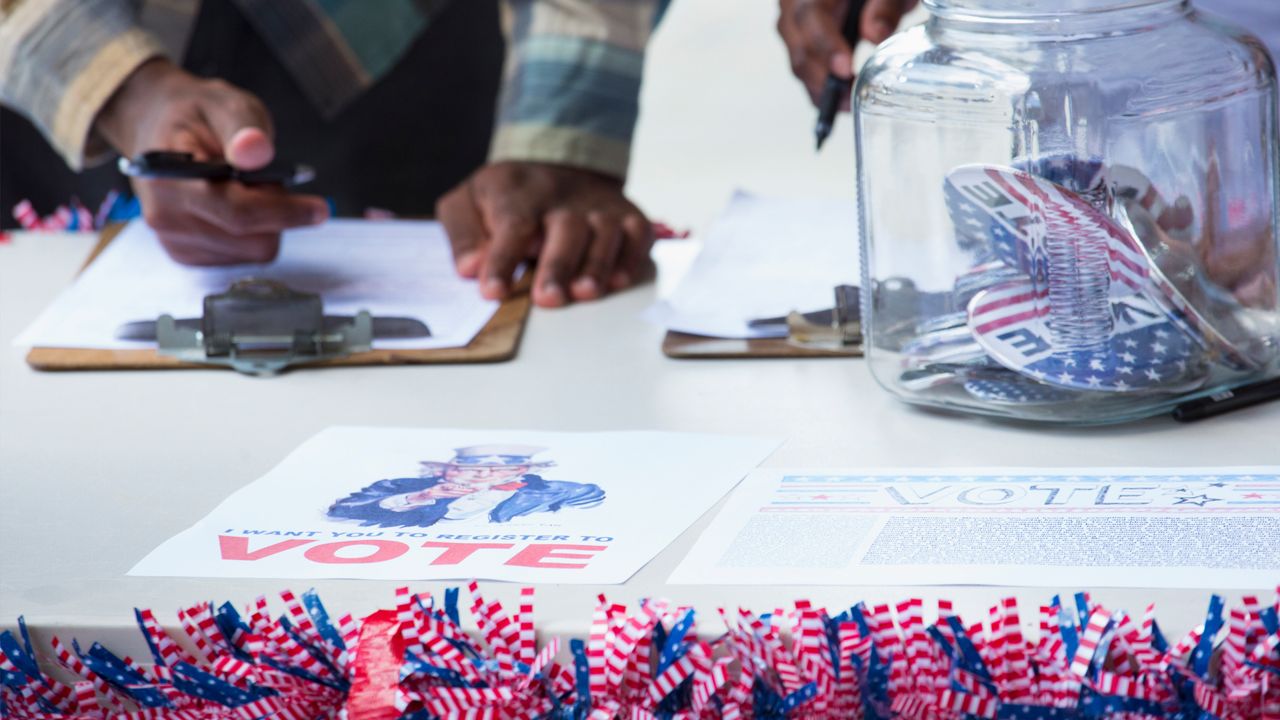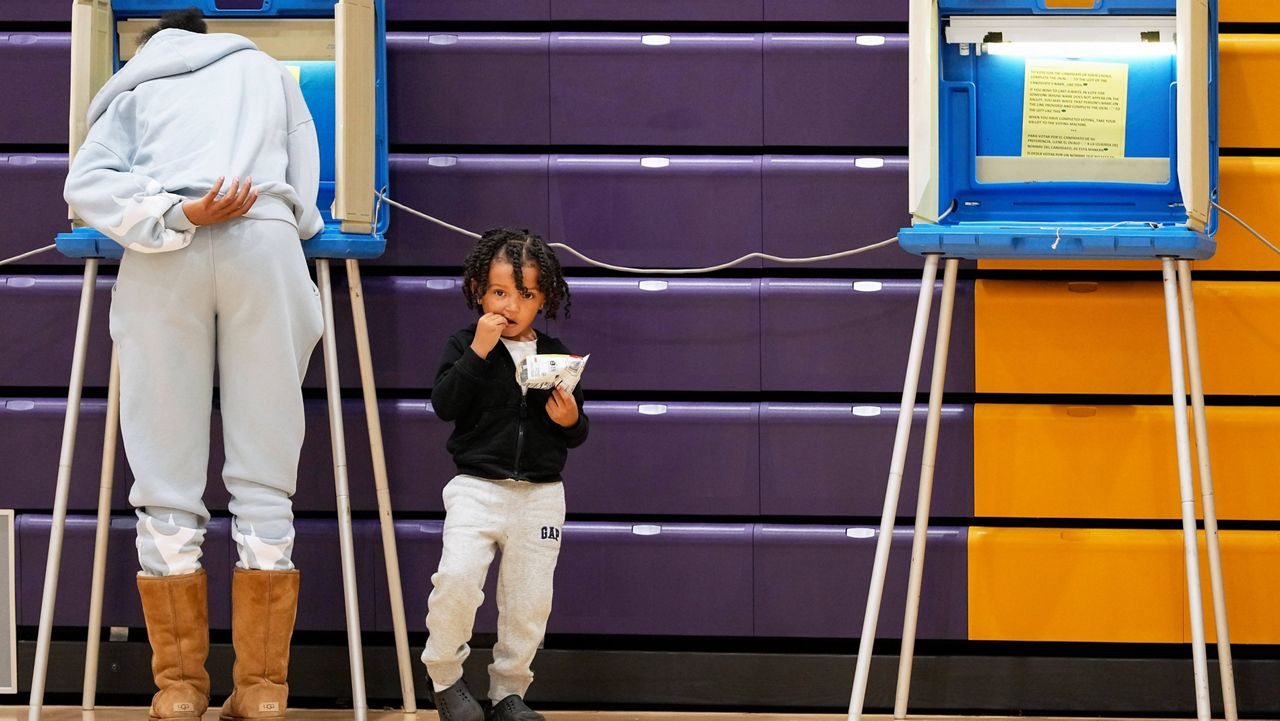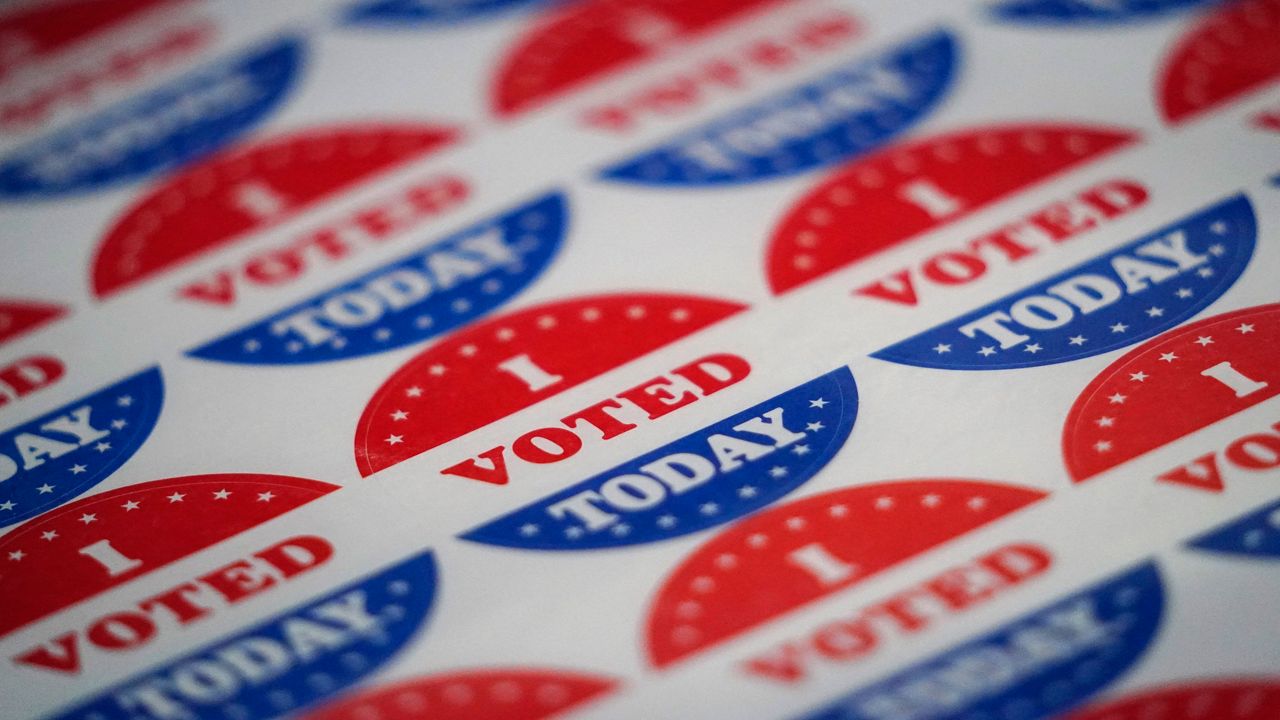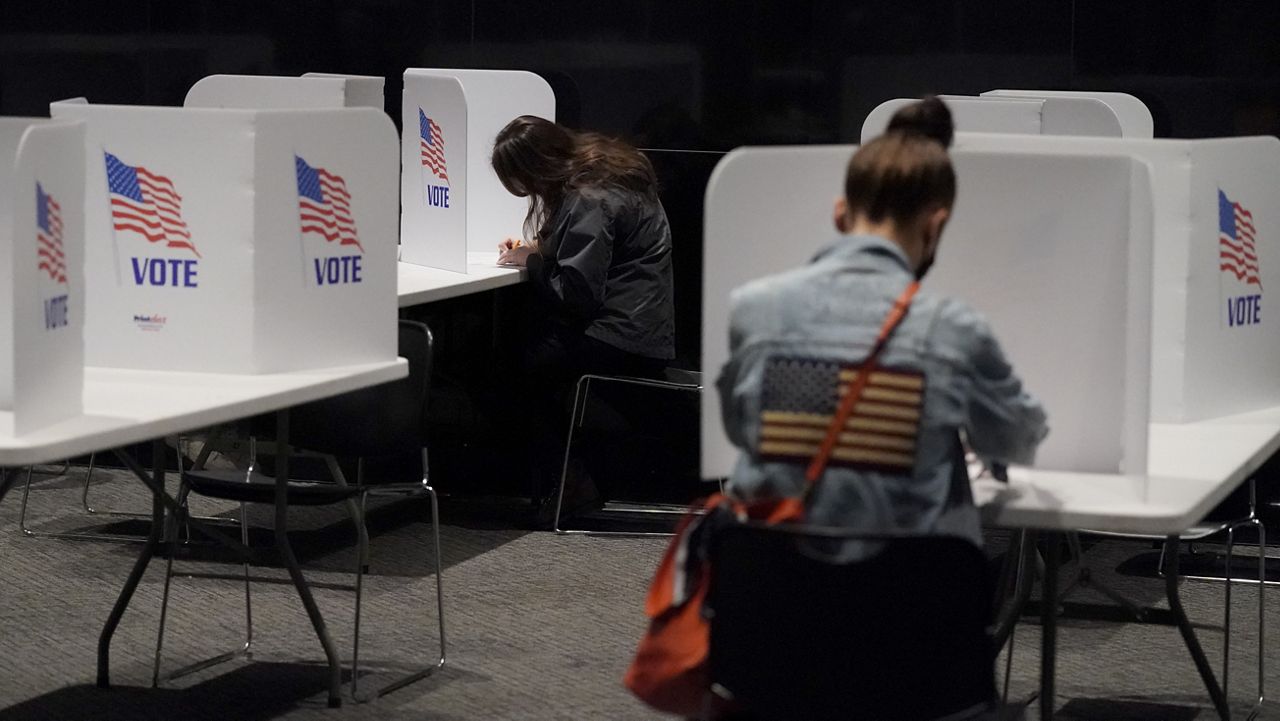WISCONSIN — The next Wisconsin election has arrived.
Do you want to vote? We've put together a list of Frequently Asked Questions to help you get in and out of your polling place without trouble for the Feb. 20 primary.
Where do I register or check my voter registration status?
REGISTER TO VOTE: The Wisconsin Elections Commission has a website where you can register to vote online. It's My Vote.WI.gov.
You can also register to vote by mailing or delivering your voter registration form to your municipal clerk up to 20 days before the election. Include proof of residence. You can look up your municipal clerk, here. If needed, you can register to vote in person, on Election Day.
CHECK MY REGISTRATION STATUS: Head to the Wisconsin Elections Commission website's voter registration page to find out your status
What’s the deadline to register before an election?
The deadline to register to vote online or by mail is Jan. 31.
If you miss that deadline, that's okay. You can still register to vote in person at your polling place on Election Day. You can also register in person at your municipal clerk's office through Feb. 16.
How do I find where I go to vote?
You can't head to the polls just anywhere. Your polling place is assigned to you based on where you live. You can find your voting precinct location by entering your address, here.
In addition to your polling place, this will provide you with hours and directions, accessibility information, the date of the next election, absentee ballot information and what exactly will be on the ballot.
How do I know who my representatives are?
Visit the Wisconsin State Legislature website. Use the "Find My Legislators" tool to look up your representatives by address, or browse the map.
I have to change my address. Do I have to do this before Election Day?
Yes, you can update your address here.
MOVING IN STATE: You must have lived at this address for 28 consecutive days to vote using this address. If you have lived there for less than 28 consecutive days before Feb. 20, you can vote using your previous address.
MOVING FROM OUT OF STATE: You must reside in Wisconsin for at least 28 days prior to Feb. 20 to vote for state officials.
How can I get an absentee ballot and when is it due?
Wisconsinites can request an absentee ballot through Feb. 15 for the primary. Absentee ballots can be requested, here.
Wisconsinites will receive enveloped that are pre-addressed and pre-paid for with their absentee ballot.
Track your ballot, here.
Local clerks will also collect absentee ballots in person prior to Election Day at their offices. Appointments may be required, so call ahead.
Find your clerk, here.
Absentee voters can also drop off their ballot at their polling place or absentee counting location on Feb. 20.
Wisconsinites who have returned their absentee ballots may not vote in person.
How does early voting work?
Early voting in Wisconsin starts Feb. 6 and varies by county. Contact your election officials for more information.
Wisconsinites who take part in early voting may not vote in person on Feb. 20. To vote early, head to your municipal clerk's office. Apply for an absentee ballot in person, and vote immediately. Then, simply seal your ballot and return it. You can also visit an early voting location. Find one near you, here.
If I work on Election Day and want to vote, does my boss have to give me time off?
In Wisconsin, employers are required to give you an unpaid 24-hour leave of absence if you're working as an election official. You need to give your boss seven days notice though. Just be aware your boss can ask the municipal clerk to confirm your role.
If you'll need to head to the polls to cast your vote during your work shift, be sure to let your employer know in advance as well. They have to let you go, but you can't be gone for more than three hours, and they can dictate when you can leave.
I am not affiliated with a political party. So I register independent in Wisconsin, right?
No. Unlike a lot of states, Wisconsin does not require you to be formally affiliated with any party.
When is Election Day?
There can be elections all throughout the year. The major upcoming elections in 2024 are:
- Feb. 20, 2024: Spring primary
- April 2, 2024: Spring election
English is not my primary language. Can I get a ballot in my language?
Some counties offer ballots in both English and Spanish. Check with your municipal clerk for specifics on what you will have access to.
You are able to bring an interpreter with you to the booth when you vote.
What kind of identification do I need to bring?
Bring a current and valid form of picture identification, such as:
- Wisconsin DOT-issued driver license, even if driving privileges are revoked or suspended
- A Wisconsin DOT-issued identification card
- A Military ID card issued by the U.S. Uniformed Services (including retired and dependent uniformed service IDs)
- A U.S. passport book or card
- A certificate of naturalization (that was issued no earlier than two years before the date of the election)
- An identification card issued by a federally recognized Indian tribe in Wisconsin (can be expired or unexpired)
- A driver license receipt issued by Wisconsin DOT (valid for 45 days from date issued)
- An identification card receipt issued by Wisconsin DOT (valid for 45 days from date issued)
- A Wisconsin DMV ID Petition Process Photo Receipt (valid for 60 days from date issued)
- A Veteran Affairs ID card (must be unexpired or have no expiration date)
- A photo identification card issued by a Wisconsin accredited university or college, or technical college that contains the following:
- The date the card was issued
- Signature of student
- Expiration date no later than two years after the date of issuance (card may be expired)
- The university or college ID must be accompanied by a separate document that proves enrollment, such as a tuition fee receipt, enrollment verification letter, or class schedule. The enrollment verification document can be shown electronically.
What are the term limits for state/county/local officials?
This varies depending on the government. The governor of Wisconsin and state legislatures do not face any term limits.
Are all elections partisan elections?
No. Many municipal and county elections are not partisan elections, meaning the candidates are not representing any political party and everyone registered can vote in those elections.
Why do some elections require a recount of votes?
There is no automatic recount in Wisconsin.
What is a provisional ballot?
It's a ballot that voters can fill out, but is not counted immediately. Provisional ballots are allocated for voters who are registered but cannot provide proof of identification and for qualified electors registered to a polling location, who are issued a current and valid Wisconsin driver's license or ID, but are not able to list that number when registering.
Provisional ballots will only be counted if the voter provides the needed information to a poll worker by 8 p.m. on Election Day, or to the municipal clerk by 4 p.m. the following Friday.
How is the order candidates are listed on the ballot decided?
In partisan general elections the order that candidates are listed is decided by which party's candidate received the most votes last election. For example, in 2012, President Obama received the most votes, so in 2014, Democratic candidates were listed first.
The ballot order for independent candidates is determined via lot, which is by chance.
What can I expect if I am voting in person on Election Day?
Once you get to your polling place, be ready to state your full name and address, show your photo ID and sign the poll book.
Find out what else to prep for, here.
I'm a military voter. What do I need to know?
If you're a member of the military, a military spouse or a military dependent, you can get an an absentee ballot online until 5 p.m. on Election Day. Request it here.








